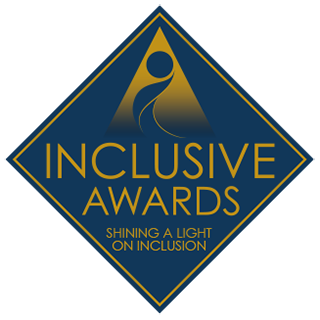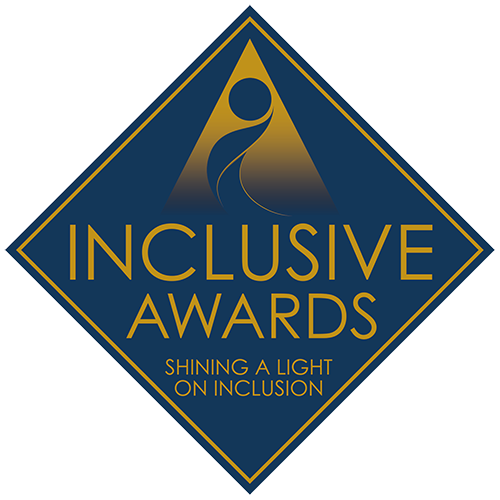What is your social mobility project? Please provide an overview:
In the UK, family income is the strongest predictor of how well a young person will do at school and the future opportunities they will have. Future Frontiers exists to change this.
We run a two-year coaching programme, targeted towards supporting disadvantaged young people through their post-16 education choices, a transition which has lifelong consequences. We focus on pupils experiencing the double disadvantage of being both from a low socio-economic background and not currently attaining the GCSE grades to study A Levels; this results in lower earning potential and likelihood of NEET status (Not in Education, Employment or Training).
At age 16, young people must make important decisions about their next steps and those from disadvantaged backgrounds lack the support and networks available to their privileged counterparts. 75% of disadvantaged young people do not achieve a strong pass in their English and Maths GCSE, and 80% will earn below £21,000 p.a. by the age of 26.
Future Frontiers students receive coaching sessions, delivered by volunteers from Future Frontiers’ business partners, during the first year of their GCSEs. They are then supported throughout the second year of their GCSE study with 1:1 career planning sessions with a Transition Manager, and build a Career Action Plan, to which progress is tracked.
In addition to the impact delivered to disadvantaged young people, our programme also upskills the leadership and mentoring skills of the volunteer coach, as well as providing the opportunity to build relationships with students from diverse socioeconomic and cultural backgrounds. To reinforce this benefit we recently implemented a DEI training module as part of our coach onboarding.
To date we have worked with over 7500 disadvantaged young people, and are mid-way through a five-year strategy to deliver transformational impact to both the young people and firms we work with. We are delivering results already: graduates of the Future Frontiers programme attend an incremental 17 more days in school vs their peers, and achieve 6% higher GCSE results. A first step towards our vision of a society where equal access to education and career opportunities enables potential to overcome poverty.
How did your project come to fruition?
Future Frontiers was born from the belief that all young people have high aspirations. But too many miss out on the guidance, networks and opportunities they need to turn these aspirations into a reality.
For Dominic Baker, Future Frontiers founder and CEO, the mismatch between aspiration and achievement amongst young people from disadvantaged backgrounds was all too clear.
Here is his story:
‘On a personal level, I had mixed experiences growing up. Until the age of nine, I lived in Surrey with four brothers and sisters – my dad was a parish priest. But just after my ninth birthday, my parents
split up and my mum took us all off to live near my grandmother in Bedfordshire without my dad knowing. I didn’t really understand what was going on. We’d visited there a lot but suddenly we were living there, and it was very different from the suburban, gentle place I’d grown up in.
My mum was a single mum with five kids, we were all on free school meals and the secondary school we went to was pretty rough.
I felt isolated; my dad wasn’t there and dealing with my parents’ break-up was brutal. But the one thing that kept me going was this idea that I was going to become a doctor. I remember at about 13 asking one of my teachers how to become a doctor, and he replied, “you can only be a doctor if your parents are rich and you’re really smart, and you have neither of those.”
By 15, I’d had enough. My dad had become chaplain of a private school in Wales and I left my mum and family behind to go to his school for three years. It was a big thing to move away and my family were very surprised. But I knew what I was doing was going to get me to where I wanted to be. In the end, this turned out not to be medicine, but education.
Straight out of University, I worked at a college in Cardiff, and it was full of the kind of students we’re focussing on now, studying for Level 2 and Level 3 vocational qualifications. Attendance and engagement was appalling – at one point, the government was testing paying them to show up. I could see they had potential but hadn’t really thought about their futures. They weren’t excited and they saw no link between college and future opportunities.
I then became a teacher through the Teach First Programme. That was 2011, at the time when the then Education Secretary Michael Gove was dismantling careers education, so there was none at all in the school I worked in. Despite being less than 2 miles from the City of London, once again I saw young people with high aspirations and heaps of potential, but nothing in place to nurture their ambitions and help them understand what they needed to do to turn them into a reality.
In my second year there, I managed to get a tiny amount of funding for career advice (mostly because I was a Science teacher and I wanted them to engage with Science in a more meaningful way). I sat them all down for a one to one, and it made a huge difference. I think a big part of it was them knowing someone wanted more for them. That core message, and the focus on personalised guidance is still the foundation of Future Frontiers now.”
In 2014, Future Frontiers won the Teach First Innovation Award prize. This support allowed Dominic to leave his job and work on Future Frontiers full time. Nine years later, Future Frontiers has a team of 35 and growing, and has supported over 7500 disadvantaged young people.
How has your project provided opportunities for people from disadvantaged backgrounds?
Disadvantaged 14-16 year-olds living in London take part in a programme of personalised career coaching and 1:1 guidance over two academic years which empowers them to make positive post-16 transitions into education or training and achieve qualifications that build towards secure, fulfilling employment.
In the first year of the programme (which happens when a student is in Year 10), young people take part in career coaching sessions to discover and develop their sense of self, interests and goals. Aged 14-15, a pupil will take part in four 90-minute sessions of structured career coaching with a volunteer from one of our business partners to discover their strengths, motivations and pathways to achieving their goals. Sessions are facilitated by a Future Frontiers Transition Manager, taking place in the offices of the partner business. Students will have a 20-30 minute conversation with a role model in a
sector that interests them, and also attend an online session with a Transition Manager to recap their learning, preparing for their post-16 transition in Year 11.
In the second year, young people will draw upon their learning to make an action plan to secure their place on a well-fitting post-16 course that sets them up for future success in their chosen career. Aged 15-16, pupils will have a 60-minute 1:1 guidance interview with a Transition Manager to review the goals, and develop a post-16 action plan that aligns with their career aspirations and predicted GCSE grades, including a first-choice and a back-up option. Based on the individual need of the pupil, they will continue to receive further support such as an additional 30-minute check-in session to review their plans and submit outstanding post-16 applications. Finally, all pupils will receive support in navigating GCSE results day and post-16 enrolment to secure their place on their desired next step.
The two-year programme supports schools in delivering against four of the eight Gatsby benchmarks – a framework which defines what careers provision in school should look like, and which are a statutory requirement in schools. The four benchmarks we deliver against are: learning from career and labour market information; addressing the needs of each pupil; encounters with employers and employees and experiences of workplaces.
The Future Frontiers programme gives disadvantaged young people access to the guidance, networks and opportunities which they otherwise would not have.
What impact has your project had on your target audience?
Since 2014, Future Frontiers has worked with over 7500 young people. We will continue to target disadvantaged young people who are at an increased risk of not fulfilling their potential at school and underachieving in their post-16 education:
– 65%+ of pupils will be eligible for Pupil Premium (including eligible for free school meals).
– The majority of pupils will be lower-attaining (predicted GCSE grades 3-5 in core subjects); [these pupils are less likely to achieve the grades to enter most London Sixth Forms and therefore more likely to face complex post-16 transitions, including choosing from a wide range of vocational courses and enrolling at a different educational institution.]
Whilst these are our minimum targets, in reality the proportion of disadvantaged young people we work with is much higher, indicative of the need for our coaching programme and the need for continued, tailored support for those from low-income backgrounds. For example, in 2021/22:
– 72% of pupils we worked with were eligible for Pupil Premium.
– 86% of pupils we worked with were lower-attaining.
To develop our extended programme over two academic years, we have completed a rigorous theory of change process to ensure that each programme component will support pupils to achieve five groups of outcomes building towards long-term impact.
1) Develop
Young people increase their:
– Career readiness
– Self-belief and motivation
– Engagement and attainment at school.
2) Enter
Young people enter a post-16 qualification that will:
– Commence at the right qualification level
– Enable them to reach their chosen career.
3) Complete
– Young people are more likely to complete the qualification they enter.
4) Achieve
– Young people are more likely to achieve: a Full Level 2 qualification (GCSE equivalent) by age 17, or a Full Level 3 qualification (A Level equivalent) by age 19.
5) Progress
– Young people make a positive onwards progression into sustained education at a higher level, an apprenticeship or sustained employment with strong earning potential.
Our long-term outcomes are for disadvantaged young people to enter, complete and achieve post-16 qualifications that will enable them to progress on to higher level learning and secure, fulfilling employment in the future. To make our long-term outcomes possible, our shorter-term aim is to empower disadvantaged young people to develop competencies that are vital to taking positive next steps into education or training at age 16:
– Career readiness against the Student Careers Readiness Index (SCRI), a national index
– Self-belief and motivation
– Engagement and attainment in school.
Below provides an overview of key statistics regarding the outcomes of our 2021/22 programmes. At the end of ‘23, in line with our five year strategy, we will be able to provide statistics on the first cohort of pupils who have progressed through the entirety of our two-year programme in its current iteration.
In the 2021/22 period, we supported:
– 1928 young people
– From 62 schools
– 72% of pupils were eligible for Pupil Premium
– 86% of pupils had predicted GCSE grades of 3-5 in their core subjects
We worked with
– 97 businesses
– 1591 volunteer career coaches
In their first year of the programme
– 1857 pupils were matched with a volunteer career coach
– 78% demonstrated an increase in career readiness
– 61% demonstrated an increase in self-belief
– 84% agreed ‘I am more motivated to work hard in school’
In their second year of the programme
– 71 pupils took part in our pilot of personalised post-16 transition support
– 89% of pupil developed a post-16 action plan which aligns with their predicted GCSE grades and career interests
We also conducted a small-scale study produced by ImpactEd on pupil engagement and attainment. This found that Future Frontiers participants demonstrated higher levels of attendance compared to the matched control group, totalling an additional 5.6 days in school in the term before taking their GCSEs. If this was maintained across the full academic year, we would see Future Frontiers pupils
spending an additional 17 days in school compared to the control group. Within the cohort of Future Frontiers students, this study measured a 6.4% increase in GCSE Maths results at the end of the programme, versus their ‘working at’ grades at the outset of the programme.
The Future Frontiers programme undeniably leaves young people inspired, motivated, and better-equipped to find the knowledge and information they need to make more-informed choices, as expressed by Y10 pupil Aaron: ‘Thank you for teaching me, coaching me, and inspiring me to find out about the career paths and opportunities that may be available in the future. This has made me able to think about my future, which has made me try my best in and out of school to achieve the best I can.’
How will receiving this award benefit your project?
As part of Future Frontiers’ five year strategy ‘Building Lasting Impact’, we have committed to a strategic priority surrounding the sustainability of Future Frontiers as a charity. This involves us working more closely with the partners and supporters who provide invaluable time and funding for young people, as well as introducing new ways for individuals and businesses to contribute to our mission.
Future Frontiers, at its operational core, relies on partner businesses for both programme delivery and a large portion of our funding. In order to establish new partnerships as well as strengthen existing partnerships, we benefit hugely from platforms with a wide reach whose values align with ours – which is exactly what the Inclusive Awards offer. Alongside this, as part of our commitment to sustainability, we are aiming to enhance the experience for the people and organisations we work with, including building a network of volunteers and advocates. Through winning awards we are able to strengthen our brand profile, supporting us in achieving our brand vision as the number one destination for businesses looking to have a positive social impact whilst engaging and developing their teams.
Please provide an endorsing statement from someone who can support this nomination (Max. 500 words)
In 2021, Coutts chose Future Frontiers as their Charity of the Year – the below highlights the experiences of Amandeep, volunteer coach from Coutts, and Darcy, a young person who participated in the programme.
1) DARCY – PUPIL
I already had an idea that I wanted to go into healthcare and become a Midwife, but I wasn’t entirely sure about what I wanted to do post-16. I hadn’t even thought about sixth form, college or A Levels – I didn’t even know what T Levels were! You don’t really get taught about it at school.
It was really helpful doing the questionnaire on Careers Pilot because it suggested different jobs that would suit me and then it told me all about those different jobs and how to get there.
It changed my mindset – I thought the only route was to do A Levels and then go straight to university, but now I know about vocational training and that’s what I want to do.
I’m excited for the next stage of the programme because, even though now I have a pathway that I want to take, I feel like in Year 11 I will have a lot of stress because of GCSEs, so being able to make a solid plan will reassure me.
I definitely think other kids should do the programme – without it they might not have as much knowledge as I have now and I think it’s always useful to have a clear plan.
If I hadn’t done this programme, I think I probably would finish Year 11 and not be 100% certain about what I want to do, whereas now, I have a clear path and I want to work hard at school because I want to get far.
I am so happy my school took part because otherwise I honestly wouldn’t have a clue. I know that everything Amandeep has taught me is going to help in the future. It has made me really happy and I really appreciate it.
Thank you so much for everything!
2) AMANDEEP – COUTTS EMPLOYEE AND VOLUNTEER COACH I was quite nervous before coaching because I’ve never coached before and I was thinking ‘what can I bring to the table?’, so taking part was a challenge for myself as well. Also, I just came back to work here after about 14 years and I thought it would be a good opportunity to meet some different colleagues and get involved.
I spoke to loads of colleagues who had volunteered for Future Frontiers before and they told me it was so rewarding. I realised it’s not about making decisions for the students, it’s more about looking at the information, going through it and facing any challenges together.
I really enjoyed it – the questionnaires and resources were really useful and it was great how it matched Darcy to jobs she was interested in.
We have learned so much about each other. We were two complete strangers and it has made me see that it doesn’t matter how old or young you are, what you do or where you come from, you can still have so many things to talk about and really help each other grow.
I’ve also realised how much people are willing to help – I have managed to get a midwife to speak to Darcy and someone has even offered work experience, all from just putting a message out to my friends to see if they could help.
The main thing I took from it is to be more confident in myself and my ability to help other people, even if I can’t always see it.
It’s just so rewarding – it feels so good when you can help somebody and make a big difference. I would definitely do the programme again and I would 100% recommend it to other people.



